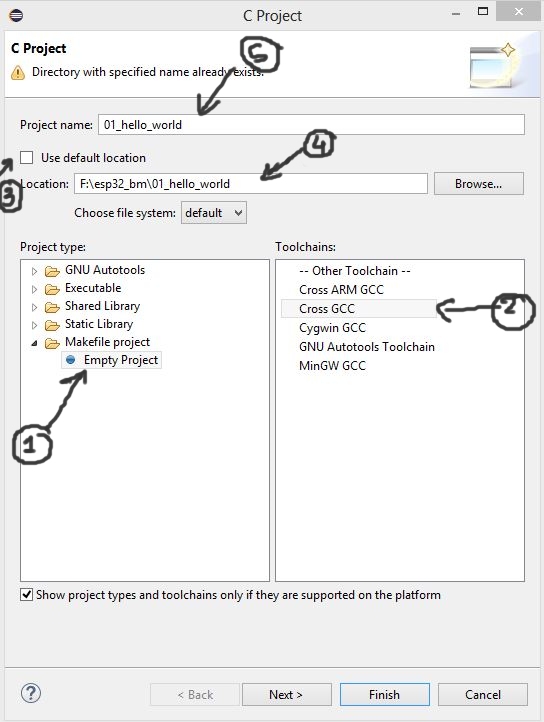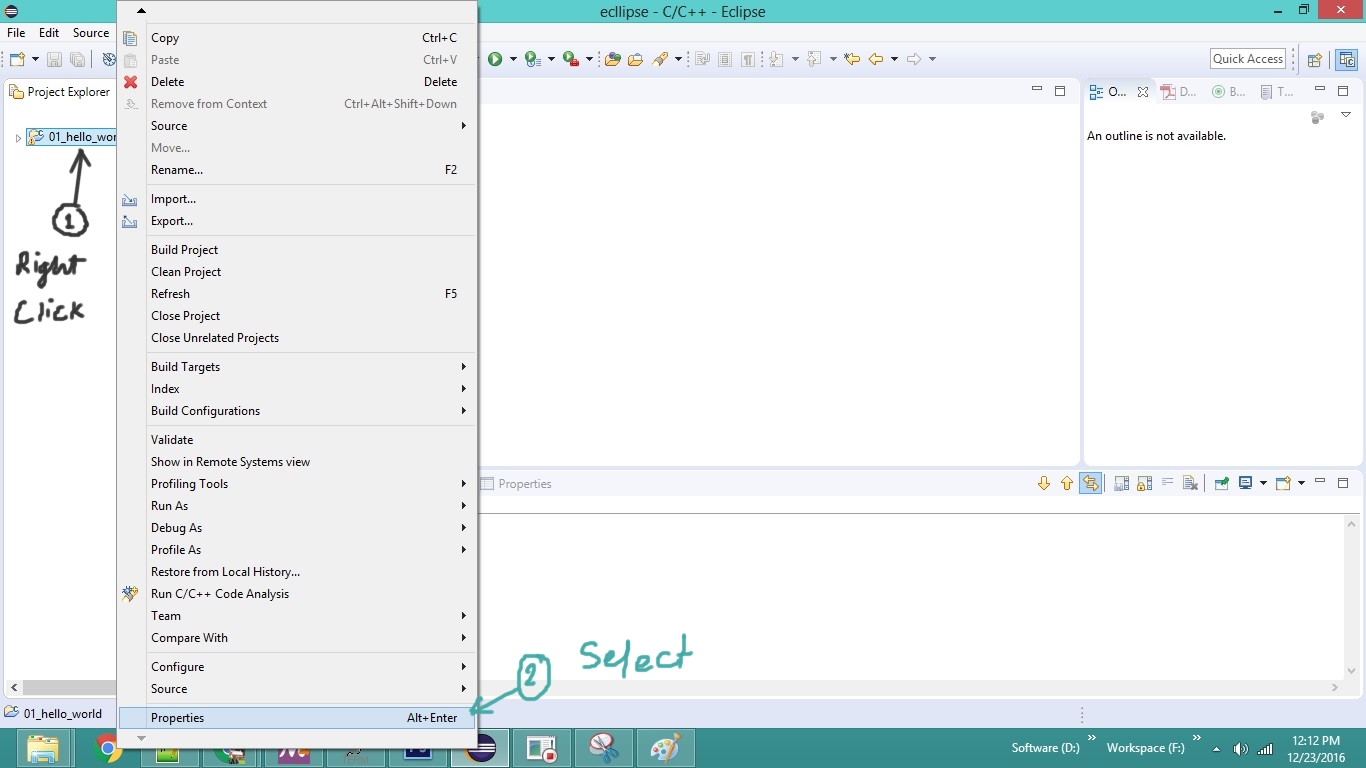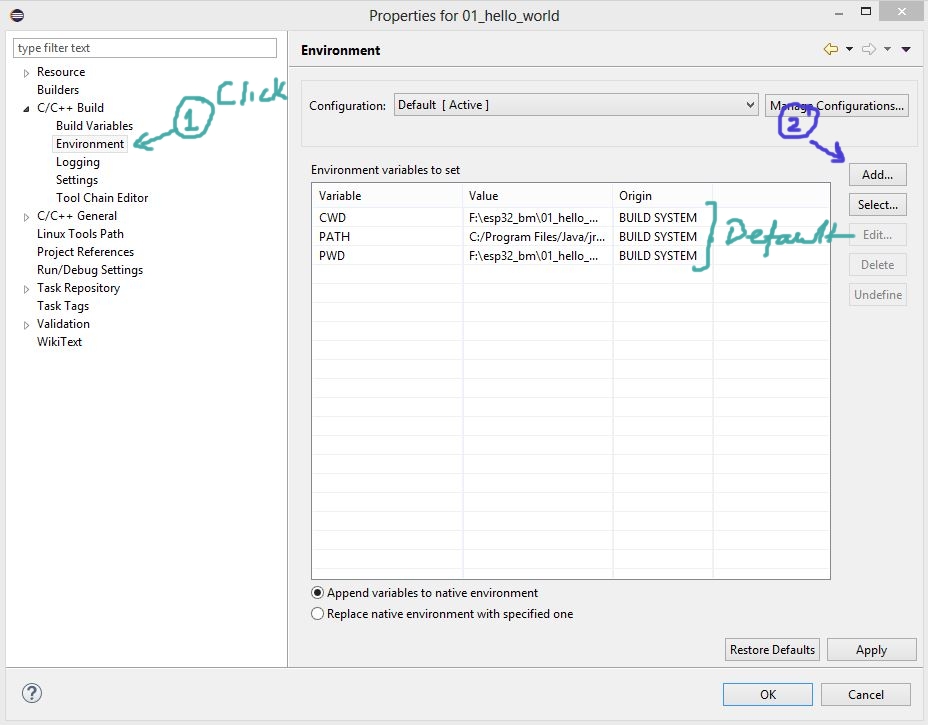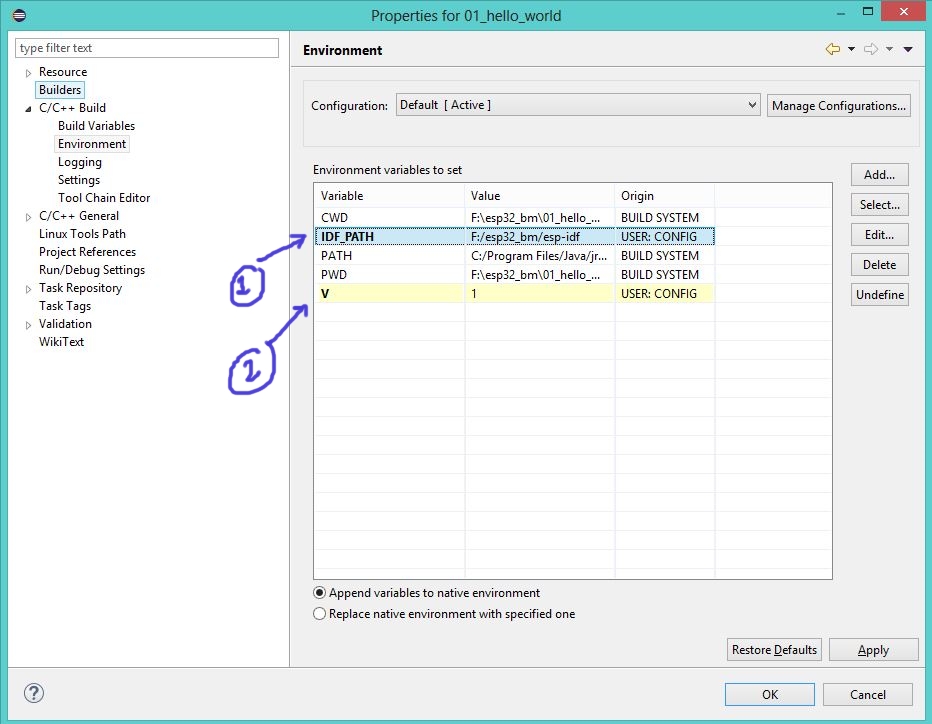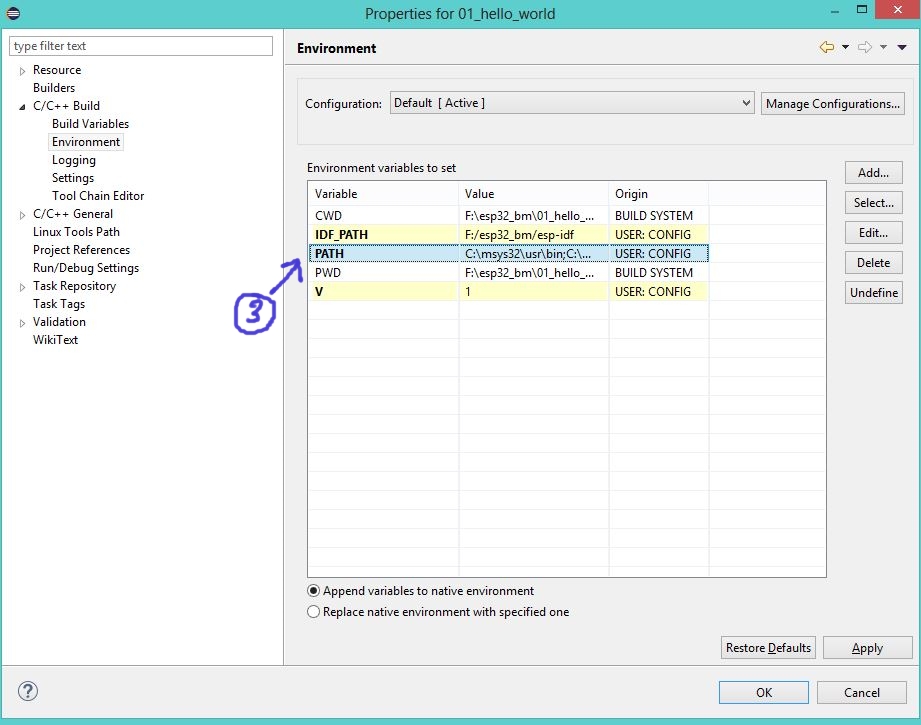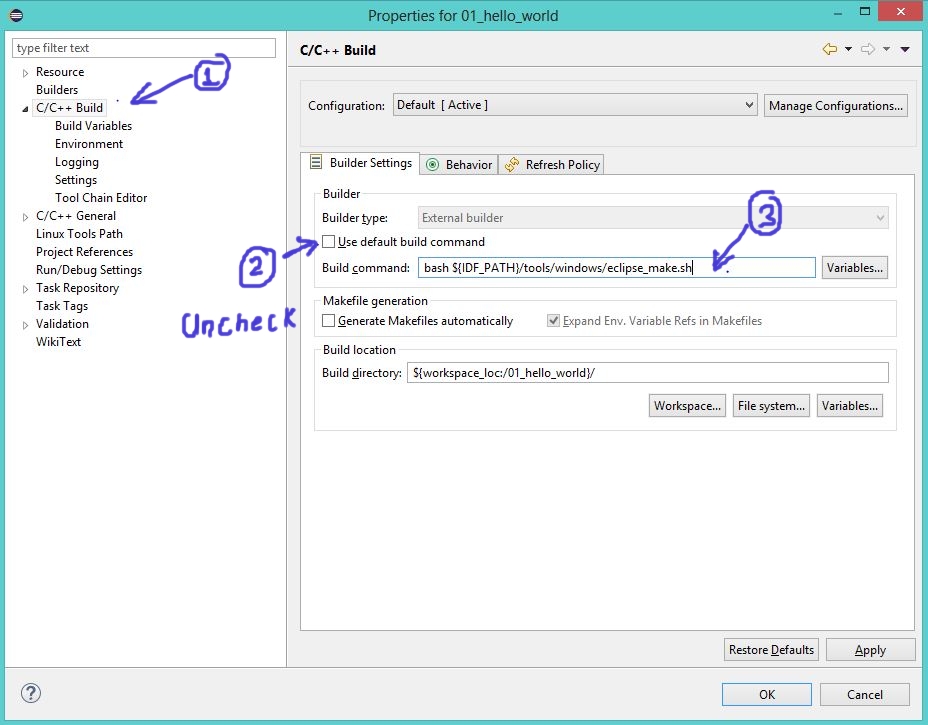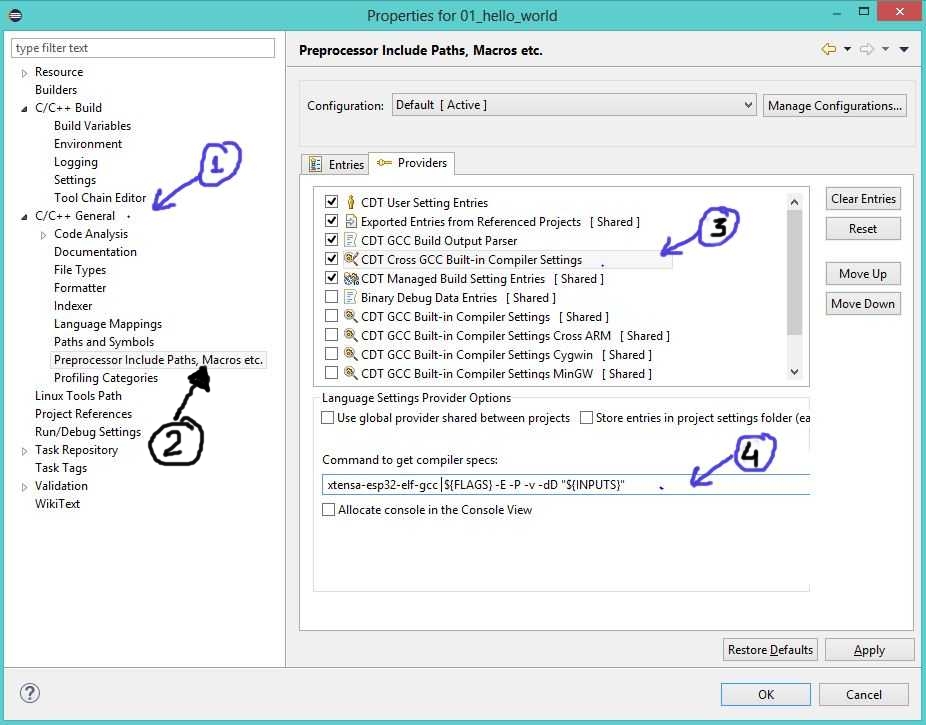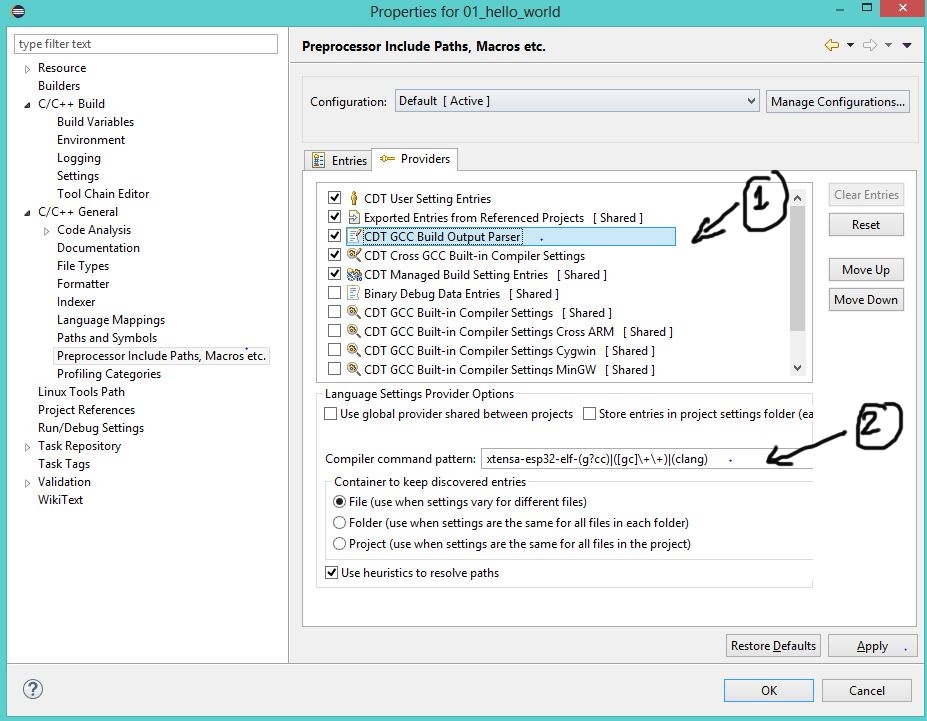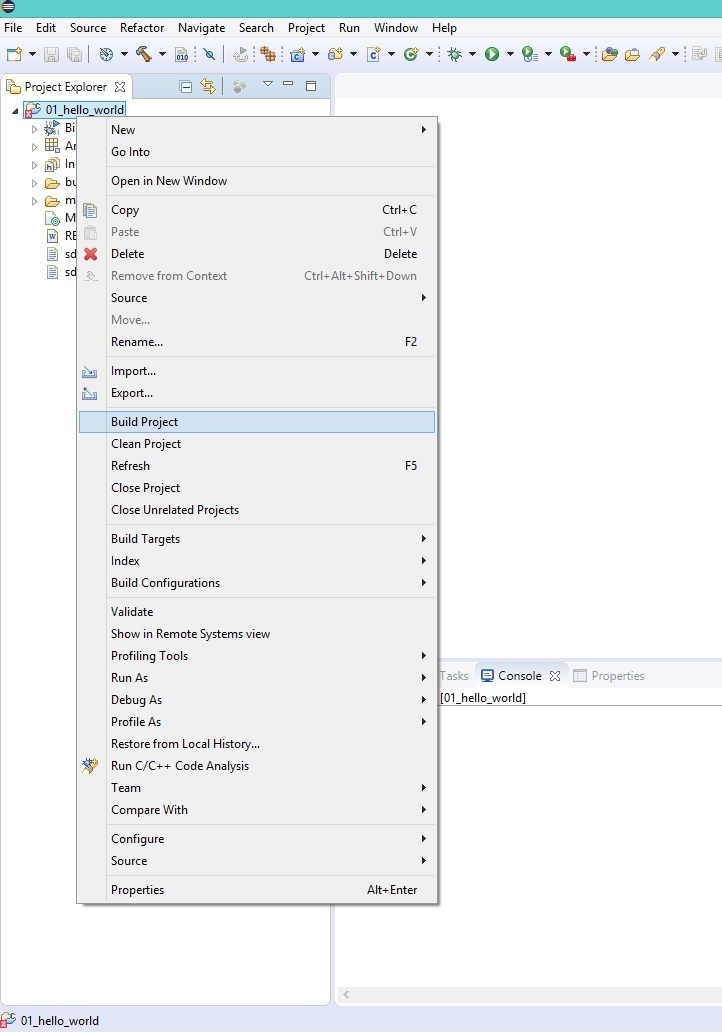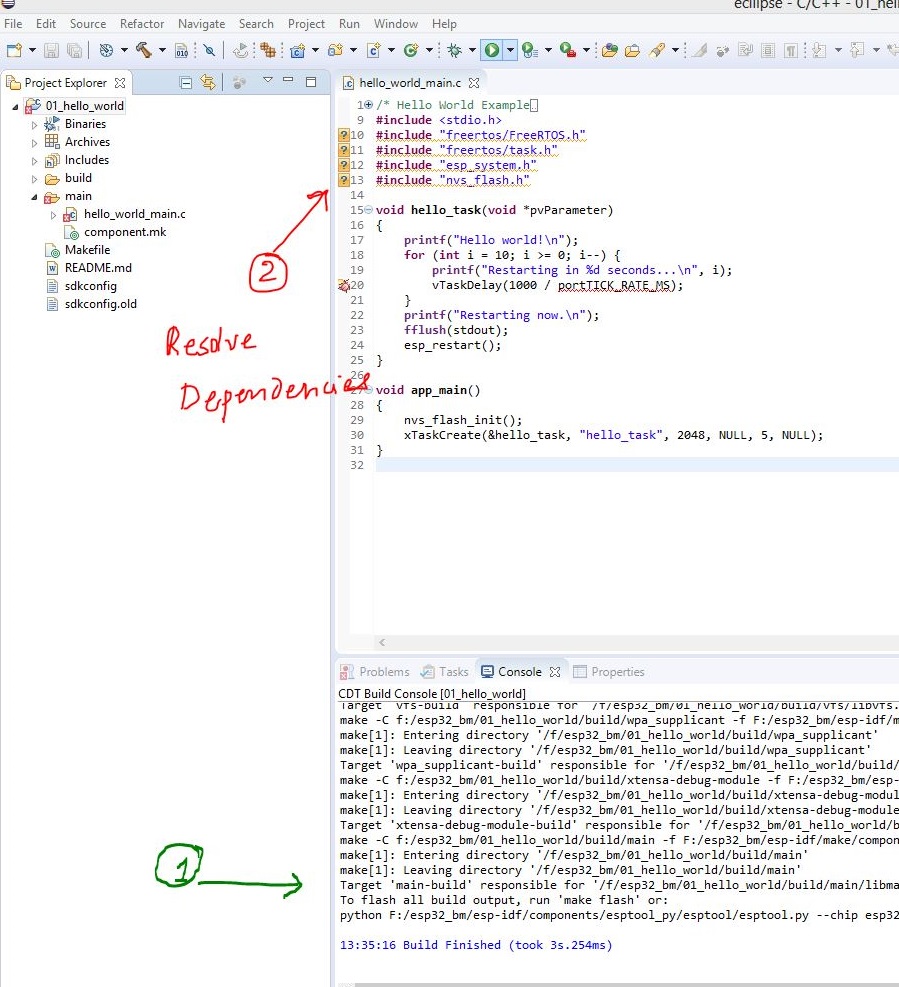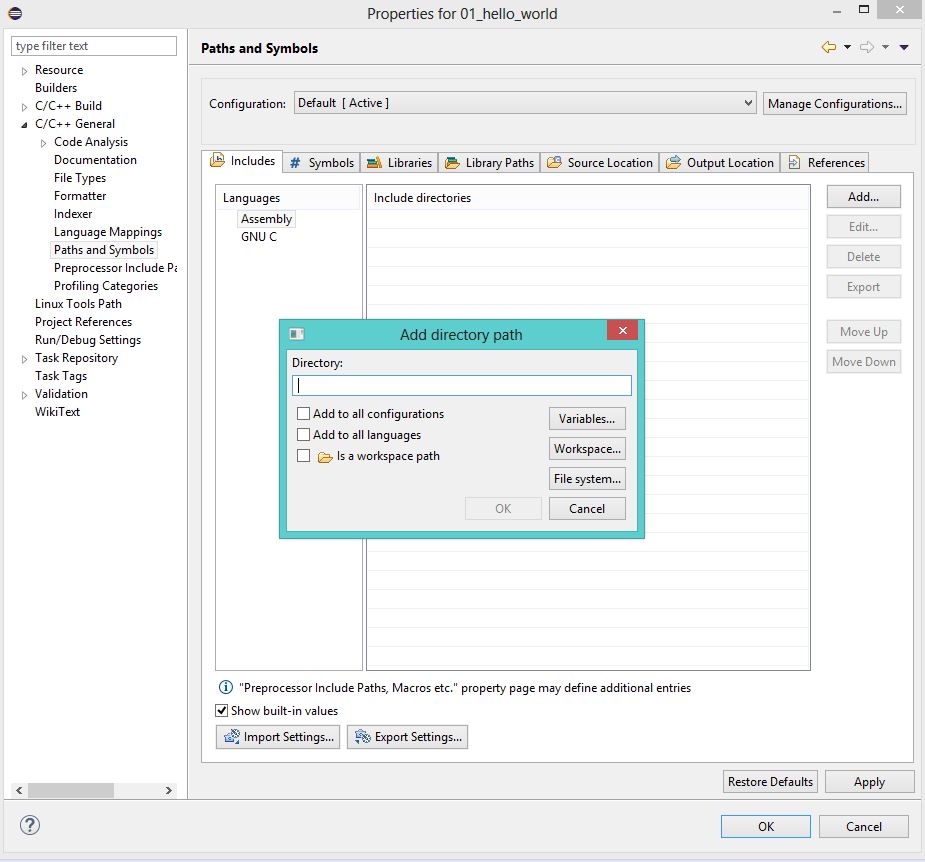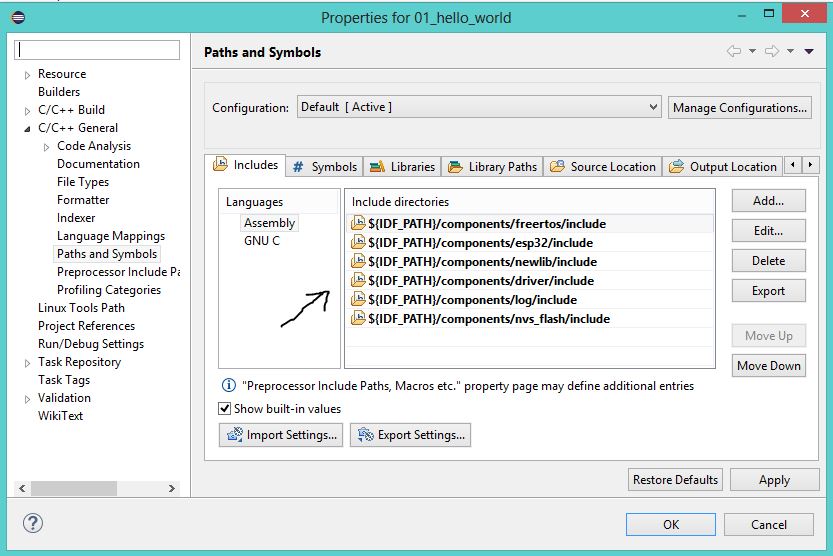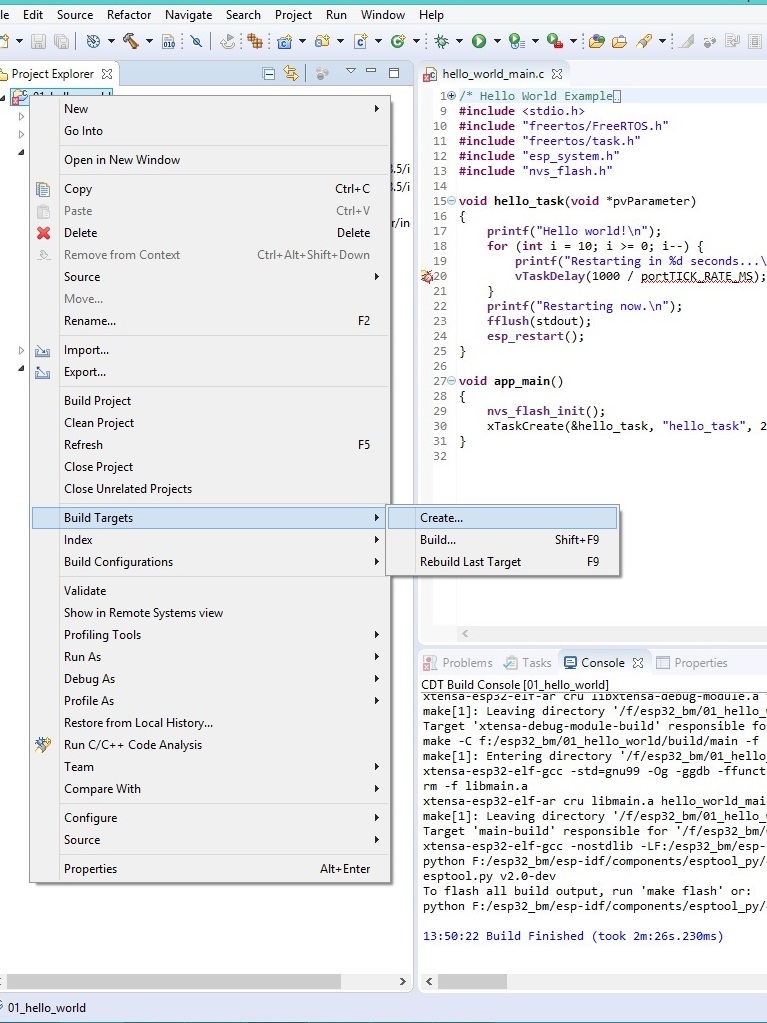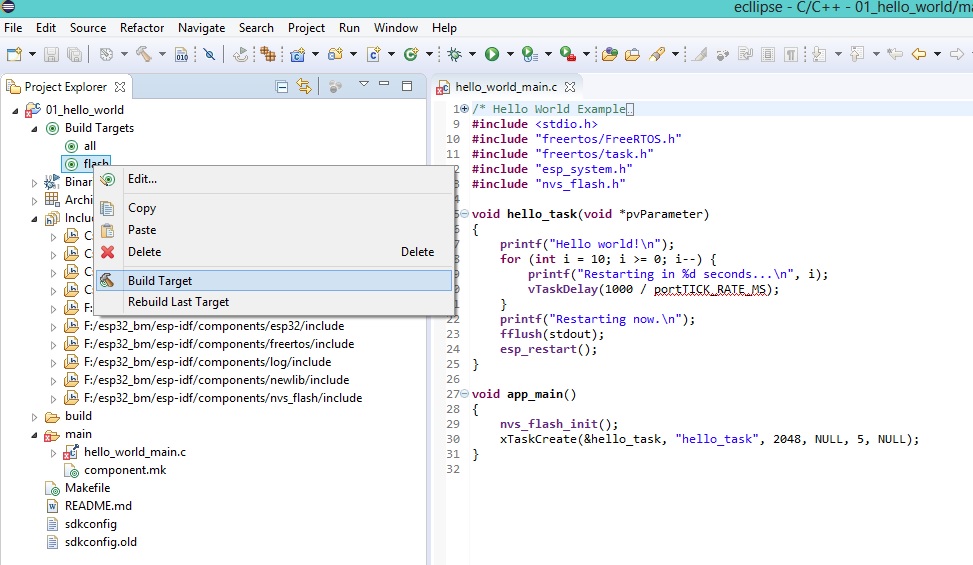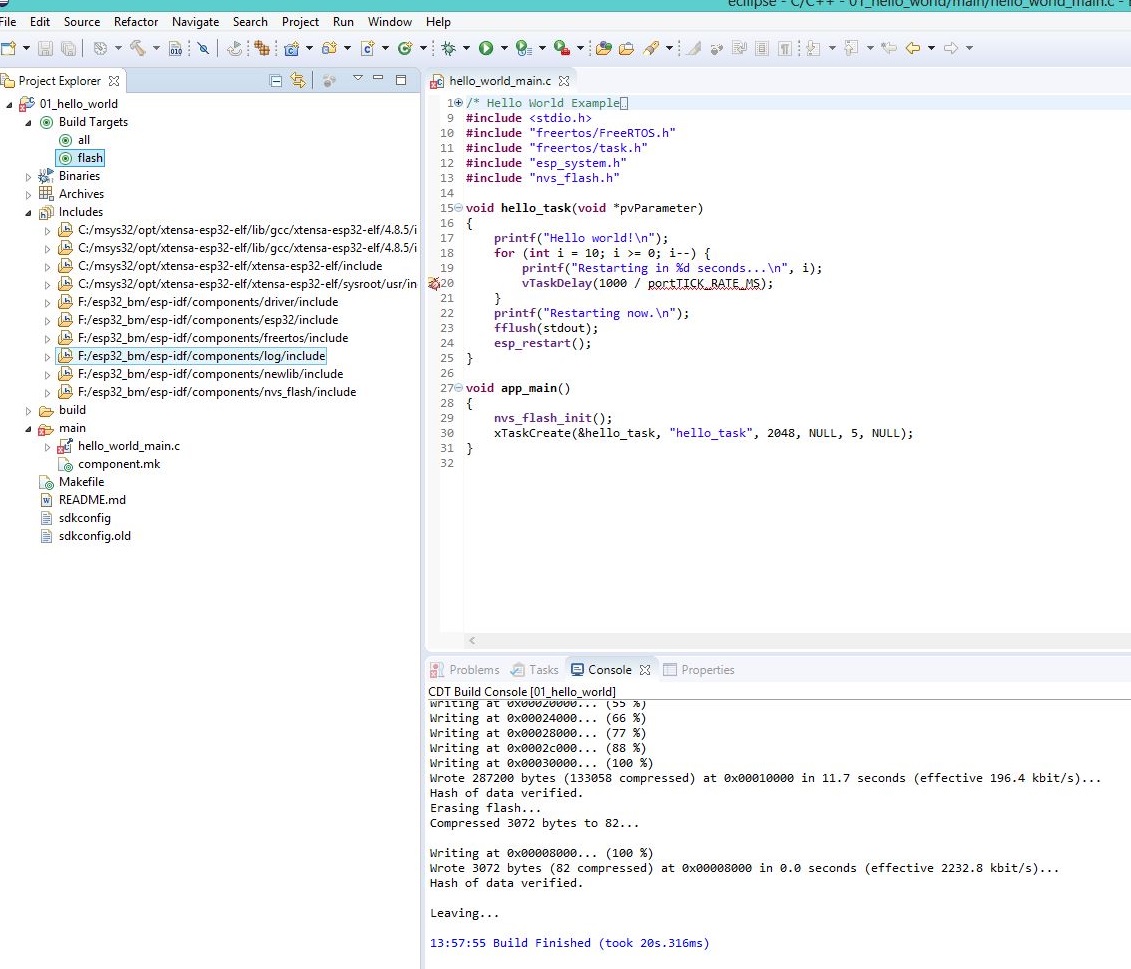(Tutorial in the making...)
Eclipse offers a very good development environment with numerous features, however setting it correctly is sometimes frustrating. Once it is done, it make the workflow quite simple. So let's set it up and see how it goes!
The first thing that needs to be done is to set-up ESP-IDF and ensure that all the dependencies are taken care of. Check the detailed tutorial on setting up ESP-IDF to get that done.
The ESP-IDF is setup in such a way that you can develop your application without modifying the ESP-IDF files. The application can reside in a completely separate directory from the ESP-IDF files. This allows the ESP-IDF core files to be updated independently of the application. We will be configuring the same 01_hello_world example from the above tutorial.
Ensure that the tool-chain works from command line, before proceeding with this tutorial. In fact this tutorial uses the makefile setup from the previous tutorial to configure the tool-chain.
Contents
Download and Install Eclipse C/C++ IDE
To get started download the latest eclipse IDE for C/C++
http://www.eclipse.org/downloads/packages/eclipse-ide-cc-developers-includes-incubating-components/indigosr2
Create a New Project
All the images below have steps marked with numbers, please perform them in a series. To start with
- Select the project type as Empty Project
- Toolchains as Cross GCC
- Uncheck Use Default Location
- Enter the project Name as 01_hello_world

